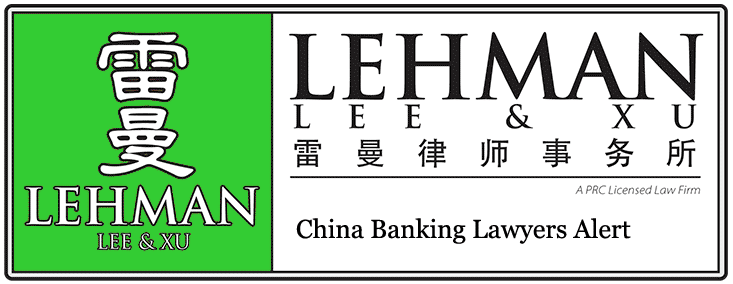- The SEC is back where it started after the settlement with the Big Four auditors
- Chinese co-operation is still needed for audit papers to be turned over to the SEC
- For China, special treatment of its companies can be a two-edged sword
By Pauline Loong
Perception is everything in markets. And the perception since the mystifying settlement earlier this month between the US Securities and Exchange Commission and the auditors of US-listed Chinese firms is that the SEC has lost – at least the first round.
China and the US have been embroiled in a long-running regulatory battle over the Chinese wall of secrecy that disallows the disclosure of even commercial documents in another jurisdiction without Beijing’s approval.
But matters seem to have come full circle. In the settlement just reached with the auditors, the SEC seems to be back where it started: It still cannot review the work papers of Chinese audits without the co-operation of the Chinese regulator, which was the problem in the first place.
The key issue had been the refusal of the Chinese affiliates of the so-called Big Four accounting firms to turn over to the SEC audit work papers relating to several US-listed Chinese companies in investigations into potential fraud. The firms argued that to do so could subject them to civil and/or criminal action in China for divulging state secrets.
What state secrets?
The real mystery is what kind of Chinese secrets would need protecting from a US regulator given that the information is already well known to their mainly international auditors and their foreign employees.
All nations have secrecy laws which would prevent any foreign government obtaining certain classes of records. But no other nation invokes its secrecy laws on issues relating to investigations into market misconduct – not even when the ensuing scandal might cause serious discomfort to the government.
The Royal Bank of Scotland, which is 82%-owned by the British government, made global headlines two years ago over the rigging of the London Interbank Offered Rate – a huge embarrassment for the British government and a scandal that reflected badly on London as an international financial centre.
Another British bank, HSBC, was exposed in 2012 for violating US sanction laws and money laundering. It is now in the news over allegations that its Swiss subsidiary helped wealthy customers dodge taxes and conceal millions of dollars of assets.
No one ever suggested that state secrets need to be protected in the investigations into those scandals.
A riddle, wrapped in a mystery, inside an enigma
Matters came to a head in January last year when an SEC judge imposed a six-month administrative ban on the Chinese affiliates of the Big Four for refusing to turn over work papers in audits of US-listed Chinese firms. The quality of audits had not been called into question.
The ban, had it gone through, would have hit business hard as it would have prevented the firms from auditing US-traded clients during a high-season period.
The SEC agreed to a conditional stay of action on the ban in a settlement with the auditors reached three weeks ago. But the conditions imposed appear to do so little in resolving the issues that started the dispute, so it begs the question of why the SEC had bothered censoring the firms in the first place.
The settlement laid down these specific procedures regarding compliance with future SEC requests for documents:
• Audit firms are to respond to SEC requests for documents within 90 days
• The documents requested will be sent to the China Securities Regulatory Commission, not the SEC
• Redactions to these documents can be made by the firms and/or the CSRC before turning them over to the SEC
• Should the audit firms determine, along with the Chinese regulators, that the requested documents should be withheld under China’s state secrets regulations, the documents will not be turned over at all
The four audit firms were each fined half a million dollars, derided by critics as little more than a “nuisance payment.”
So what happened?
The SEC response has been interpreted variously as 1) kicking the can down the road until the two jurisdictions reach a comprehensive agreement 2) throwing in the towel 3) the auditing firms being too big to ban or too irrelevant to be worth banning 4) some closed-door arrangement that no one knows about and 5) none of the above.
In the normal regulatory context, national security interests are not involved in the disclosure of corporate documents. Regulators and judges are basically seeking access to audit papers and detailed financials which are regarded as essential for transparent trading on stock markets.
The crux of the dispute is really about special treatment – exemption from foreign courts’ jurisdiction to which Chinese companies should be entitled when China's state secrecy laws are invoked.
But special treatment is a two-edged sword
It encourages the belief – already widely held by China’s domestic investors and by more some of the more cynical overseas investors – that market talk is more reliable than a company’s books and that speculation is the only way to make money from Chinese listed companies.
What is politely called China’s weak institutional environment already makes market manipulation and accounting sleight-of-hand easy for some of the unscrupulous companies in the A-shares market.
Nanjing Tanker, once the world's sixth-largest tanker owner by fleet size, made history last June as the first state firm in China ever to be delisted from the Shanghai Stock Exchange.
The company did not properly disclose information about huge debts racked up at the height of the market to finance its expansion. Its loans - a reported US$1.3bn from Chinese and international banks – were channeled mostly through special purpose vehicles in what arguably amounted to a non-disclosed book.
When it went bust, its shareholders were blindsided.
The Chinese government is currently looking to private-sector capital to fund genuine long-term development projects to boost the economy. If financial shenanigans are cynically considered par for the course in a market, attracting long-term non-speculative investment is going to be one huge uphill slog.
-- Edited by Oliver Morrison
https://www.tradingfloor.com/posts/the-sec-and-chinas-state-secrets-law-too-hot-to-handle-3791136 |


